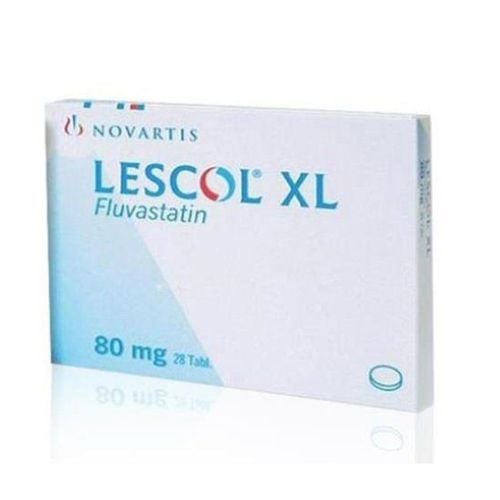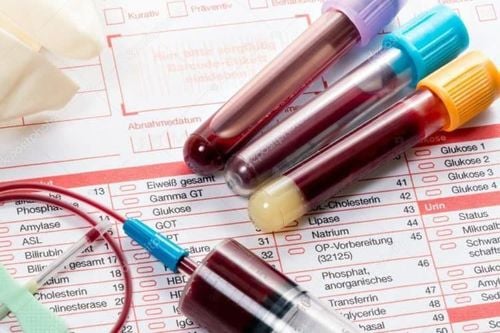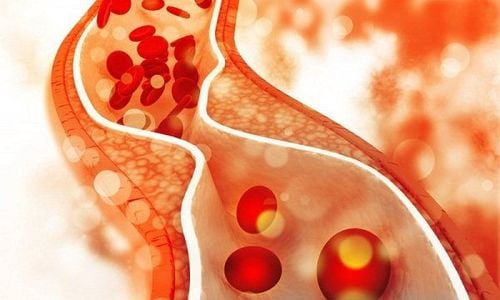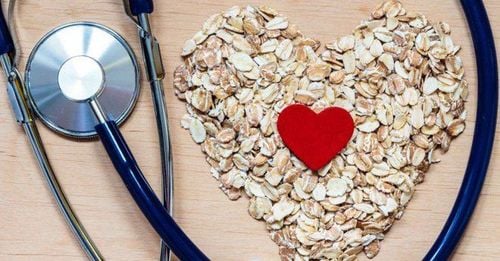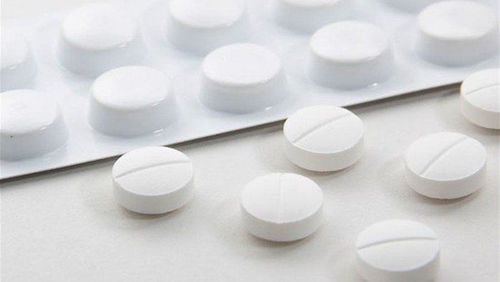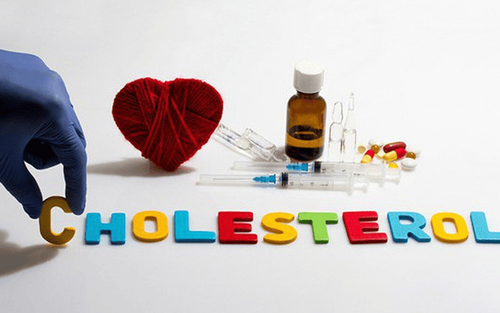This is an automatically translated article.
The article was professionally consulted by Specialist Doctor I Nguyen Hong Phuc - Emergency Resuscitation Doctor, Emergency Resuscitation Department - Vinmec Phu Quoc International General Hospital. The doctor has nearly 20 years of experience in Emergency Resuscitation.Cholesterol in women is a type of fat that is necessary for the growth of cells in the body, helping to produce hormones, bile acids and vitamin D. However, excess cholesterol is a risk factor. cardiovascular diseases in women.
1. What is cholesterol?
Cholesterol is a fat, like wax. Our bodies use cholesterol as a raw material to create the outer shell of our cells. Cholesterol in women is also important for the production of several hormones, including estrogen and testosterone. Cholesterol is also involved in making vitamin D and bile acids, which help you digest food. But too much cholesterol is not a good condition for the female body, which can lead to a variety of diseases, especially cardiovascular disease in women.2. The origin of cholesterol
The liver is where most of the cholesterol in the body is produced. Also, small amounts can come from everyday foods, such as meat and dairy products. The fats in these foods are converted into triglycerides. Triglycerides travel through the bloodstream and are stored in fat cells, serving as a source of excess energy in the body. Besides being a source of fat, the body also converts sugars found in fruits and sugary foods into triglycerides.3. What is good cholesterol and bad cholesterol for women's health?
Female cholesterol, along with proteins and triglycerides, is involved in the synthesis of a substance called lipoprotein. There are two main types of lipoproteins:LDL - Cholesterol: (Low-density Lipoprotein - Low-Density Lipoprotein): This is a type of lipoprotein that is responsible for carrying cholesterol to organs in the body. If there is too much LDL, they tend to accumulate on the walls of blood vessels. LDL is often referred to as bad cholesterol. HDL - Cholesterol: (High-density Lipoprotein): This is a type of lipoprotein that collects cholesterol in the blood and returns it to the liver. The liver then breaks down the cholesterol into simple substances that can be eliminated from the body. HDL is also known as good cholesterol.

4. How to determine cholesterol levels in women
To measure cholesterol levels, your doctor will order a blood test. The test results will show where your cholesterol levels are compared to the normal range of a healthy person. When analyzing lipoprotein composition, the doctor will measure total cholesterol, LDL cholesterol, HDL cholesterol and even triglycerides. Combining all of the above indicators, the doctor will make the best decision for the treatment goal of dyslipidemia. Ideal cholesterol levels will vary by age and gender: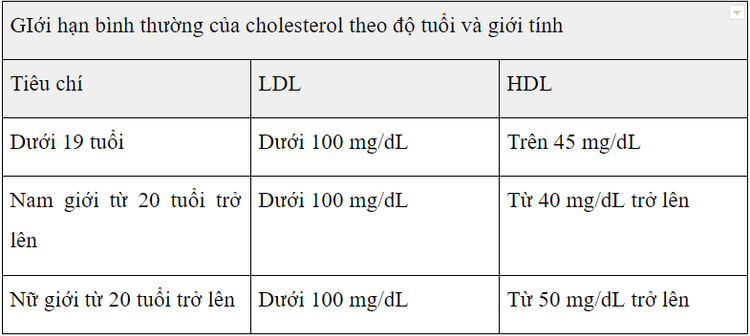
5. What is dyslipidemia?
Dyslipidemia, also called dyslipidemia, hyperlipidemia or hyperlipidemia, is a condition that occurs when the cholesterol or triglyceride levels in the body become abnormal (beyond normal limits). A common cause of dyslipidemia is when LDL cholesterol and triglyceride levels go up too high while HDL cholesterol levels drop too low. Dyslipidemia due to this cause increases the risk of cardiovascular disease in women.6. Why high LDL cholesterol leads to cardiovascular disease
When women have high levels of LDL cholesterol, they accumulate in the walls of blood vessels. At the same time, if HDL drops low, the ability to remove bad cholesterol from the blood will be limited. The accumulation of LDL in the walls of blood vessels triggers the body's immune response, leading to plaque buildup. This plaque can cause hardening and narrowing of the blood vessel lumen, a condition called atherosclerosis.Over time, atherosclerotic plaque has the ability to form blood clots, narrowing or blocking the flow of blood in the arteries. If this happens in an artery in the heart, it will cause a heart attack. If a blood clot blocks an artery in the brain, it can lead to a stroke. Both of these conditions are very serious, life-threatening to the patient.
7. Other risk factors that can lead to cardiovascular disease
In addition to high cholesterol, the following risk factors are also likely to cause cardiovascular disease:Age Family history of cardiovascular disease Male gender Smoking habits, drinking alcohol Lack of activities physical obesity, overweight, poor diet, associated diseases, such as diabetes and high blood pressure.

Some risk factors for cardiovascular disease are only found in women:
Polycystic ovary syndrome Gestational hypertension Gestational diabetes For women without the above risk factors for cardiovascular disease, Cholesterol levels should be measured every 5 years, starting at age 45. In the case of women with existing risk factors for cardiovascular disease, routine cholesterol testing should be started early.
8. How to reduce the risk of cardiovascular disease
8.1. Lifestyle change
The following measures can reduce the risk of cardiovascular disease without the need for medication:Build a heart-healthy diet: Add more green vegetables, fruits, beans and low-fat dairy fat. The main food should include fish and poultry. Limit red meat, sugary drinks and table salt. Binge eating is one way to reduce the risk of high blood pressure and related cardiovascular diseases. Exercise: This is an effective method to improve heart health and increase blood circulation. What's more, exercise helps increase HDL levels and lower blood pressure. Weight loss: People who are overweight and obese are very susceptible to cardiovascular diseases. Quit smoking. Smoking causes blood vessels to quickly become atherosclerotic. It is one of the biggest risk factors for heart disease, lowering HDL and raising blood triglycerides. In addition, smoking causes serious breathing problems.
8.2. Use medicine to treat
Statins are a class of drugs used to inhibit cholesterol production in the liver. The statin group of drugs, in addition to lowering LDL, also helps to reduce triglycerides and increase HDL, thereby preventing atherosclerosis.Statin drugs are being used more and more in the world in the prevention and treatment of cardiovascular diseases related to blood lipid control.
Please dial HOTLINE for more information or register for an appointment HERE. Download MyVinmec app to make appointments faster and to manage your bookings easily.
Reference source: Acog.org




